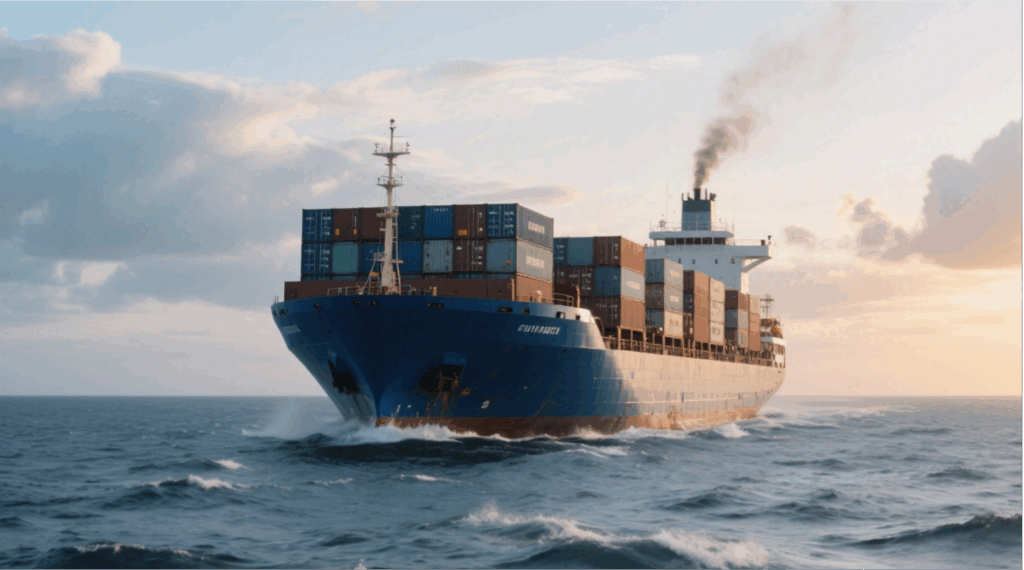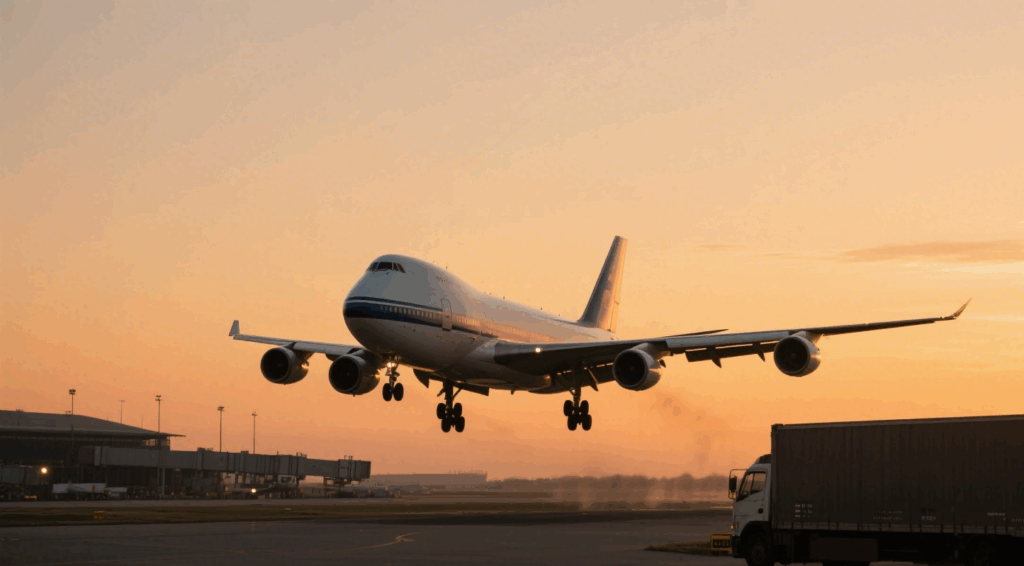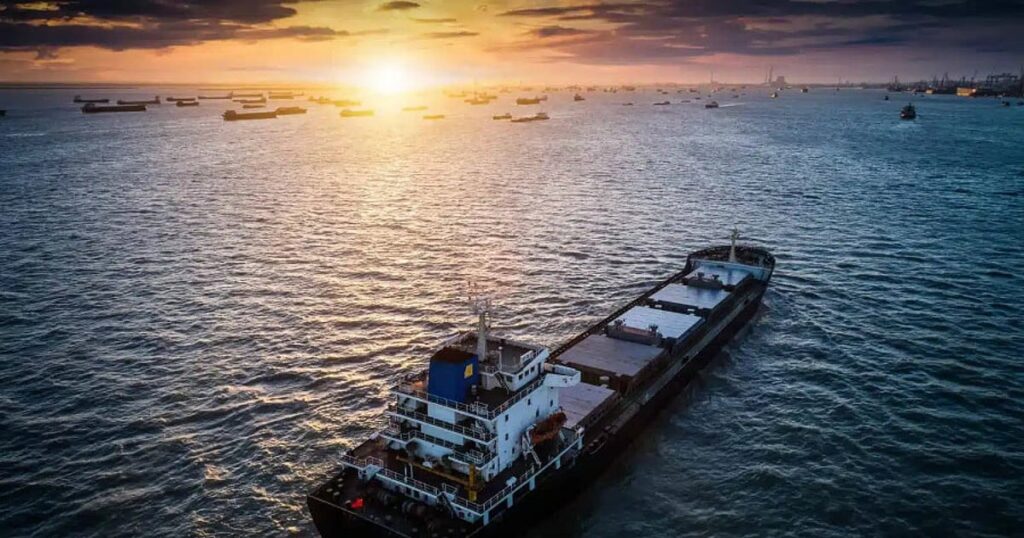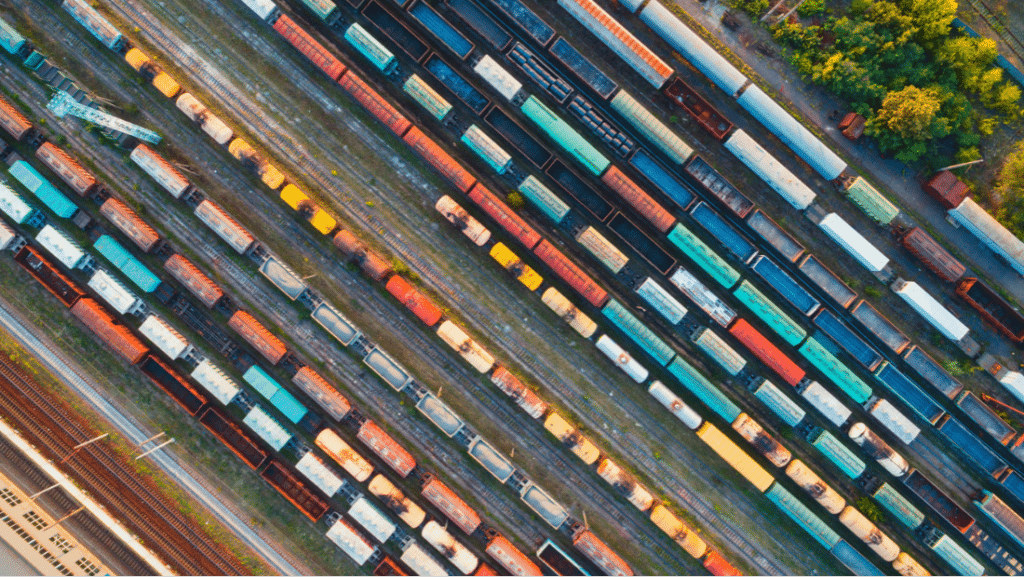- By Della tj
- September 22, 2025
- Sea Freight, Shipping
International trade between Asia and North America relies heavily on ocean freight from China to USA, which remains the most economical shipping option for large volumes of goods. Although air freight is faster, the majority of importers prefer sea transport because it offers unmatched scalability and cost efficiency. Understanding rates, transit times, documents, and strategies is essential for managing supply chains effectively.
Why Is Ocean Freight from China to USA So Popular?
Sea freight dominates because of three main advantages:
- Lowest cost per unit for bulk cargo.
- Flexible options for both small and large shipments.
- Massive capacity, allowing thousands of products per container.
Moreover, ocean freight supports industries such as furniture, electronics, apparel, and auto parts where high volumes must move at competitive costs.
How Much Does Ocean Freight from China to USA Cost?
Container costs vary depending on origin, destination, and season.
Container Pricing (2025 Estimates)
| Route (China → USA) | 20GP | 40GP | 40HQ |
|---|---|---|---|
| Shanghai → LALB | $2,200–$2,600 | $3,900–$4,300 | $4,200–$4,600 |
| Ningbo → NYC | $3,600–$4,100 | $6,700–$7,200 | $7,000–$7,500 |
| Shenzhen → Miami | $3,800–$4,400 | $6,900–$7,400 | $7,200–$7,700 |
Accordingly, importers often balance cost with delivery speed by selecting alternate ports or using a mix of transport modes.
What Factors Influence Ocean Freight Pricing?
Shipping costs depend on multiple elements:
- Port pairings and sailing frequency.
- Container size (20GP vs 40HQ).
- Fuel surcharges and GRIs set by carriers.
- Peak season demand during August–November.
- Congestion or strikes that disrupt schedules.
Additionally, global supply chain trends and fuel prices cause frequent fluctuations.
How Long Does Ocean Freight from China to USA Take?
Transit times depend on origin, destination, and shipping line schedules.
Average Sea Freight Transit Times
| Origin Port (China) | Destination Port (USA) | Transit Time (Days) |
|---|---|---|
| Shanghai | Los Angeles (LALB) | 15–18 |
| Ningbo | Oakland (OAK) | 16–20 |
| Shenzhen (Yantian) | Long Beach (LALB) | 17–21 |
| Qingdao | New York (NYC) | 30–35 |
| Shanghai | Houston (HOU) | 28–32 |
Indeed, East Coast shipments take nearly twice as long as West Coast shipments.
Real-World Shipping Cases
Case 1: Furniture from Ningbo to Los Angeles
- Cargo: 2×40HQ containers of wooden furniture
- Mode: FCL sea freight
- Cost: $9,200
- Transit Time: 19 days
- Result: Importer reduced per-unit shipping costs by more than half compared to air transport.
Case 2: Electronics from Shenzhen to Miami
- Cargo: 1×20GP container of consumer electronics
- Mode: Sea freight
- Cost: $4,100
- Transit Time: 33 days
- Result: Reliable delivery with stable rates despite longer timeline.
FCL vs. LCL: Which Is Right for You?
Comparison Table
| Factor | FCL (Full Container Load) | LCL (Less than Container Load) |
|---|---|---|
| Cargo Volume | Best for >15 CBM | Ideal for <15 CBM |
| Cost Efficiency | Lower cost per unit | Higher cost per cubic meter |
| Customs Handling | Faster clearance, single shipper | Slower due to mixed cargo |
| Risk of Damage | Minimal, sealed container | Higher, mixed with other goods |
As a result, growing companies often shift from LCL to FCL once shipment volumes increase.

Customs Documents Required for Ocean Freight
Proper documentation is essential for clearance in US ports.
Customs Documents Checklist
| Document | Purpose |
|---|---|
| Bill of Lading (B/L) | Proof of shipment |
| Commercial Invoice | Declares cargo value and description |
| Packing List | Lists items and quantities |
| HS Code Declaration | Determines tariffs and duties |
| Certificate of Origin | Verifies country of manufacture |
| Importer Number (IRS/EIN) | Required for US customs clearance |
Furthermore, incomplete paperwork can lead to delays and additional storage fees.
Ocean Freight vs. Other Transport Modes
Mode Comparison
| Mode | Pros | Cons |
|---|---|---|
| Ocean | Lowest cost, scalable, eco-friendly | Longest transit times |
| Air | Fastest, reliable, secure | High cost, unsuitable for bulk |
| Rail | Faster than sea, eco-friendly | Limited direct US access |
On the other hand, businesses with urgent shipments still rely on air freight despite higher costs.
How to Save on Ocean Freight from China to USA
Practical strategies include:
- Book early to secure lower rates.
- Consolidate shipments to reduce LCL charges.
- Negotiate annual contracts with carriers or forwarders.
- Optimize packaging to minimize volumetric waste.
- Select alternate ports to avoid congestion surcharges.
Consequently, businesses that plan ahead achieve more predictable costs.
Role of Freight Forwarders in Ocean Freight
Freight forwarders streamline logistics by:
- Negotiating competitive shipping rates.
- Reserving container space during peak seasons.
- Managing customs paperwork.
- Offering multimodal transport solutions.
Therefore, forwarders are vital partners for small, medium, and large importers alike.
Conclusion
In conclusion, ocean freight from China to USA remains the backbone of international trade thanks to its cost efficiency and massive capacity. While slower than air freight, it provides scalable solutions for importers handling large volumes. By preparing documents correctly, selecting between FCL and LCL wisely, and partnering with freight forwarders, businesses can reduce risks and optimize costs. Ultimately, managing ocean freight from China to USA effectively ensures supply chain resilience and long-term competitiveness.
- Consult TJ China Freight Forwarding for the lowest quote. They will provide you with reliable, cost-effective service.
FAQ:
Q1.What is the average cost of ocean freight from China to USA?
Shipping rates usually range $2,000–$7,500 per container, depending on origin, destination, and seasonal market conditions.
Q2.How long does shipping from China to USA by sea take?
Transit times average 15–40 days, depending on whether goods arrive at West Coast or East Coast ports.
Q3.Can small businesses ship goods using ocean freight from China to USA?
Yes, LCL options allow small importers to share containers, making sea freight affordable even for limited cargo volumes.
Q4.What paperwork is required for customs clearance in the USA?
Key documents include the Bill of Lading, packing list, commercial invoice, HS codes, and certificate of origin.
Q5.Is ocean freight more affordable than air freight from China?
Sea freight is significantly cheaper per unit than air freight, especially for heavy cargo and full container loads.








